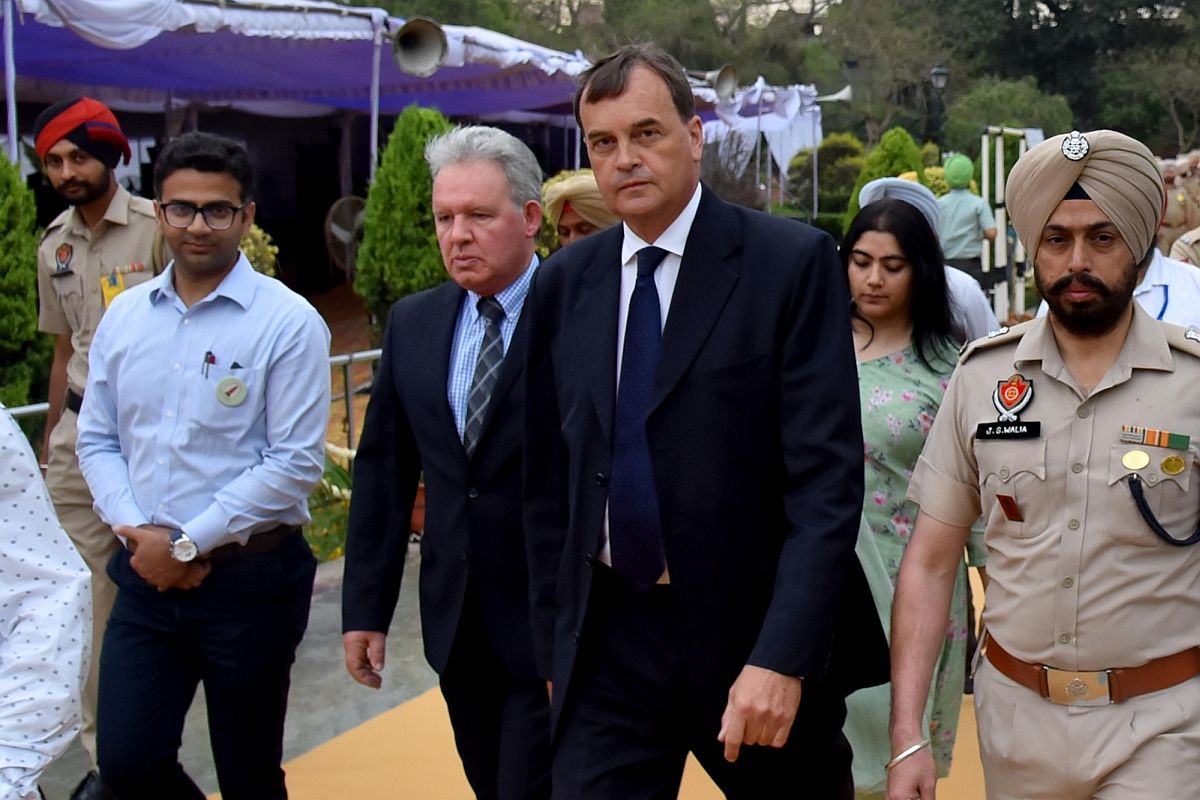Congress’ ‘mangalsutra’ attack on PM Modi over Prajwal Revanna sex scandal
Congress also urged Narendra Modi government at the Centre to bring back Revanna with the help of Interpol.
Earlier in the day, President Ram Nath Kovind, Prime Minister Narendra and several other leaders paid tributes to the martyrs of the massacre.

British High Commissioner to India Dominic Asquith (C) at the Jallianwala Bagh martyrs memorial in Amritsar on April 13, 2019. (Photo: IANS)
As the nation commemorates the 100th anniversary of the massacre of hundreds of innocent Indians by British forces at the Jallianwala Bagh, British High Commissioner Sir Dominic Asquith on Saturday expressed deep regret and sorrow but remained non-committal on any apology coming from the British government on the brutal killings.
“We deeply regret what happened,” the British High Commissioner said in his remarks in the Visitor’s Book at the Jallianwala Bagh National Memorial here.
Asquith paid floral tributes at the memorial.
Advertisement
On the issue of an apology by his government, Asquith evaded a direct response to the media: “I know this is a really important question. I would just ask you to respect what I came here to do which was to commemorate those who died here a 100 years ago — to express the sorrow of the British government and the British people.”
“What happened 100 years ago was a tragedy. Prime Minister Theresa May in the House of Parliament this week referred to it as a ‘shameful scar’ in our history,” he said
“Her predecessor, Prime Minister David Cameroon, when he visited India, referred to it as a deeply shameful scar. My own great grand father, who was Prime Minister for almost a decade, in 1960 referred to this as one of the worst outrages in our whole history,” he said, adding that both governments (Britain and India) are committed to the flourishing relationship (between both countries),” he further said.
“Today we remember with deep sorrow those who were killed on April 13, 1919 and regret the suffering caused,” Asquith also tweeted.
Today marks the centenary of the massacre, the bloodiest day in Indian history when British forces led by Brigadier General Reginald Dyer opened fire on hundreds of unarmed, innocent Indians, including women and children, who were protesting peacefully against the oppressive Rowlatt Act of the British government.
At least 400 people were killed after some 50 British soldiers opened fire within the walled enclosure in Jallianwala Bagh. However, Indian figures put the toll at closer to 1,000.
Earlier in the day, President Ram Nath Kovind, Prime Minister Narendra and several other leaders paid tributes to the martyrs of the massacre.
Congress president Rahul Gandhi who arrived in Amristar on Friday, paid his tribute and laid wreath at the Jallianwala Bagh memorial. He was accompanied by Punjab CM Captain Amarinder Singh and state minister Navjot Singh Sidhu.
The British government, even after 100 years, has only regretted the massacre but stopped short of apologising for the killing of so many innocent people.
Rejecting the regret expressed by British Prime Minister Theresa May as “inadequate”, Chief Minister Amarinder Singh on Friday demanded “an unequivocal official apology from Britain”.
(With agency inputs)
Advertisement